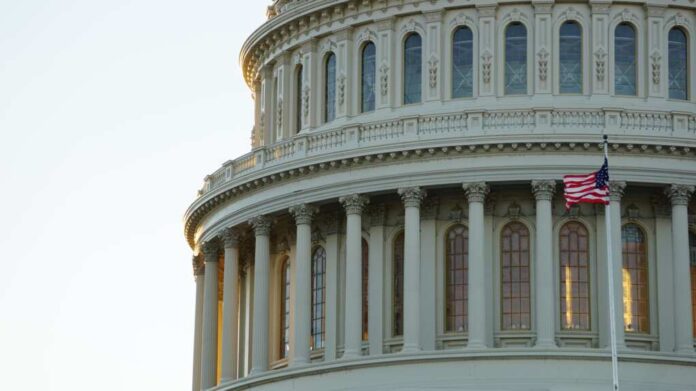
(PatriotNewsDaily.com) – Republicans in Senate are actively exploring options to navigate around the defense spending limitations established by the recent debt limit agreement negotiated between Speaker McCarthy and President Biden. This has set them on a collision course with their counterparts in the House of Representatives.
Republican senators have expressed their frustration with the proposed funding allocations for the DoD put forward by House Republicans and Senate Democrats. These allocations represent a modest increase of over 3 percent compared to current spending levels.
During a committee hearing, Senator Lindsey Graham (R-SC) passionately voiced his concerns regarding the budget deal, particularly highlighting its implications for the Navy and fighter squadrons. He argued that downsizing the Navy and allocating insufficient funds for defense would severely undermine national security, particularly in countering the threats posed by China, as well as supporting Ukraine in its conflict with Russia.
Senator Graham suggested that Senate Republicans might seek to renegotiate the defense spending cap imposed by the debt limit law later this year. He emphasized the critical importance of maintaining adequate defense spending to effectively deter China and safeguard national security interests.
Senator Susan Collins (R-ME) also expressed her reservations about the inadequate defense funding levels stipulated in the new debt limit law for the fiscal year 2024. She underscored the necessity of adequately addressing the security challenges facing the nation.
House Republicans have proposed an annual defense appropriations bill amounting to $826 billion, while Senate Democrats have proposed $823 billion, aligning with the spending limits established in the negotiations between McCarthy and Biden. These figures do not encompass defense spending allocated to other departments, such as the DOE, the DHS, and funds earmarked for military construction and veterans affairs.
Senators Graham and Collins are hopeful of raising defense spending levels later this year, potentially through a supplemental defense spending bill that includes funding for Ukraine. However, McCarthy has already expressed his opposition to such an arrangement, suggesting significant hurdles in its path.
Complicating matters further, House Republicans have presented a proposal to cut an additional $119 billion from discretionary spending by setting spending targets for annual spending bills that fall significantly below the caps agreed upon by Biden and McCarthy. This proposal is expected to exert considerable pressure on the DHS.
Failure to reach a consensus between Senate Democrats and House Republicans regarding spending levels increases the likelihood of a stalemate, rendering the passage of regular spending bills unattainable. In such a scenario, a stopgap spending measure would become necessary. Failure to pass all 12 appropriations bills by December 31 would trigger a uniform 1-percent rescission for both nondefense and defense discretionary spending, with defense programs bearing a greater brunt.
Senators Collins and Graham also expressed concerns regarding the proposed spending allocations for homeland security put forth by Senate Democrats. The funding for the Department of Homeland Security is under strain due to the spending cap agreed upon in the debt limit deal.
Senator Patty Murray (D-WA), Chairwoman of the Senate Appropriations Committee, acknowledged the challenges posed by the debt limit agreement to federal funding priorities. Senator Graham argued that the spending caps under the agreement would leave the Department of Homeland Security with insufficient funds to effectively address critical issues such as drug trafficking, particularly the inflow of fentanyl across the U.S.-Mexico border.
Both Senator Graham and Senator Collins emphasized the severe ramifications of maintaining the spending caps over the long term. They expressed their reservations about supporting the proposed funding allocations for the Pentagon and the DHS.
The disagreement between the Senate Democrats and House Republicans arises from the Senate Democrats’ proposed budget authority of $56.9 billion for the annual Homeland Security appropriations bill, while the Republican-controlled House Appropriations panel has approved $63.9 billion.
Copyright 2023, PatriotNewsDaily.com

















